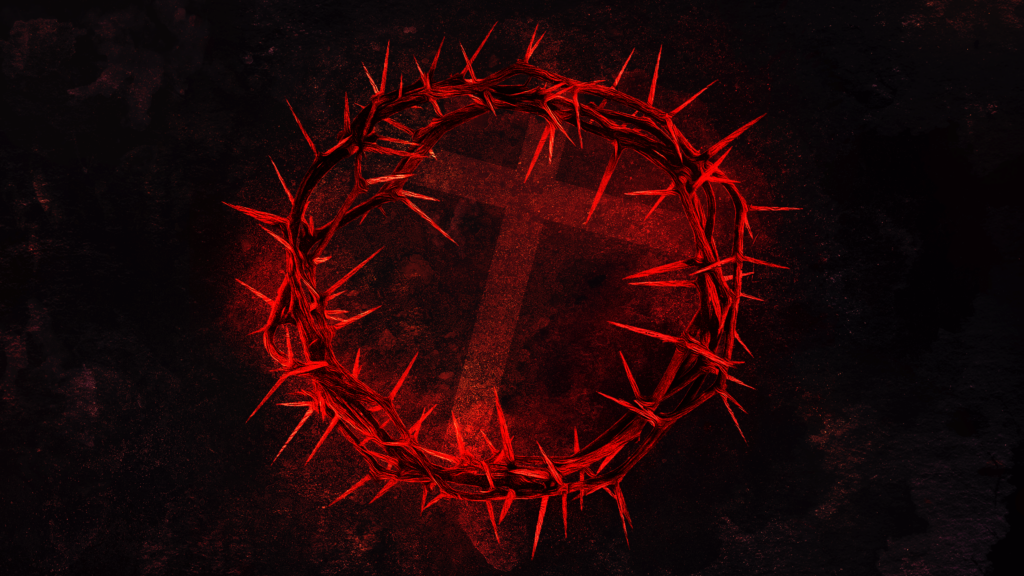Healed by His Stripes Pt. 2
The doctrine of substitutionary atonement through Jesus Christ makes manifest the immeasurable love of God. In 1 Peter 2:24, Peter says that “[Christ] his own self bare our sins in his own body on the tree.” Even without the familiar quotation “by whose stripes ye were healed” the connection to Isaiah’s prophetic crowning jewel is evident: “he hath borne our griefs (Is. 53:4);” “he bare the sin of many (Is. 53:12).” Jesus Himself spoke of Himself as the prophesied substitute saying, “my body…is broken for you (1 Cor. 11:24);” and again, “I lay down my life for the sheep (Jhn. 10:15).” Jesus was imputed─ credited─ with our sin and punished in our place under the wrath of God so that we might be declared righteous in Him (compare Rom. 4:24 and Luke 22:37). This incomparable act of love, Jesus laying down His life for us, is the very heart of God’s redemption!
Application to the doctrine of substitutionary atonement:
When the Bible says that God the Father “hath made [Jesus] to be sin for us,” it is not to say that Jesus transformed into sin, neither does it mean that Jesus became morally sinful while on the cross. Rather, the reference, which is found in 2 Corinthians 5:21, is speaking in terms of imputation.
What does imputation mean? It means that Jesus was accounted by God as a sinner─ a lawbreaker─ though He was not one. Substitutionary atonement is about a legal exchange─ Jesus regarded by God and judged as wretched as us, and us regarded by God as righteous as Him. When Isaiah prophesies that “the LORD hath laid on him the iniquity of us all (Is. 53:6),” he is describing how God the Father judicially credited Jesus, the spotless Lamb of God, with the sin-guilt of all mankind. Only by bearing man’s guilt in full could Jesus bear God’s wrath in full and so procure full expiation─ the removal of guilt by full satisfaction of the just penalty. He willingly became our propitiation─ a sacrifice to satisfy the infinite wrath of divine judgment (1 Jhn. 4:10). This is the only way that God “might be just” and the “justifier” of “the ungodly (Rom. 3:26, 4:5).” For those who, being born of the Spirit, trust in Jesus as their Substitute, the result of Christ’s work is nothing less than an entire blotting out of their sins and a free and perfect righteousness credited to their account!
Application to sanctification:
Christ’s work of atoning our sins opens up the door for the Spirit’s work of mortifying the power of indwelling sin and bearing through us the fruit of righteousness. As Peter says, Jesus “bare our sins in his own body on the tree, that we, being dead to sins, should live unto righteousness… (1 Pet. 2:24).” The cross has flipped everything on its head. Whereas before our conversion we were dead to God and alive unto sin, we are now dead to sin and alive unto God! We are dead to sin because we─ the sinner─ have been put to death in Christ at the cross. As the Scripture says, “our old man is crucified with him, that the body of sin might be destroyed, that henceforth we should not serve sin (Rom. 6:6).” We are now to believe God’s word and “reckon” ourselves “to be dead indeed unto sin, but alive unto God through Jesus Christ our Lord (Rom. 6:11).”
From this position of faith, we have the power of the Holy Spirit to obey the command: “Let not sin therefore reign in your mortal body, that ye should obey it in the lusts thereof (Rom. 6:12).” In this way we must be “denying ungodliness and worldly lusts (Tit. 2:12)” and living instead “unto righteousness (1 Pet. 2:24).” Victory in this process requires hunger and thirst for righteousness in a continual pursuit of Jesus (Matt. 5:6; Heb. 11:6).
Application to the doctrine of physical healing:
Some Bible teachers take First Peter 2:24 as a promise of physical healing, but the context shows that the soul is in view rather than the body. Those who suppose that entire physical health is the right of every believing Christian in this life are forced to make endless qualifications. If all of the negative health effects of the curse are void for those with faith to receive it, then Christian women ought not to have pain in childbearing, nor should any Christian wear glasses, have scars (Gal. 6:17), nor should any Christian age beyond their prime or die physically─ for all these are effects of the curse. And what are they to do with Paul’s words, “though our outward man perish, yet the inward man is renewed day by day (2 Cor. 4:16)?” Christians ought to pray to God for physical healing, for He does often answer such requests (Php. 2:27), but not receiving physical healing does not imply a lack of faith as some would have us believe. The key is to understand that while entire health was secured in Christ’s atoning work, the realization of it is yet a future aspect of the outworking of redemption (Rom. 8:23).

